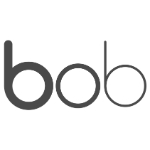Learn about the common HR challenges and their solutions to ensure smooth and efficient human resource management in your organization.
Advanced HRMS software is a robust tool for any organization to reduce HR challenges. Especially it is a challenge for small and medium-sized businesses to manage their HR efficiently. Business owners need to spot the challenges in their process and overcome them before they become trouble.
Human Resources (HR) is the backbone of any successful organization, playing a crucial role in managing employee relations, ensuring legal compliance, and fostering a positive work environment.
However, HR professionals face numerous challenges that can impede their ability to achieve these goals. This article delves into the various HR challenges and provides practical solutions to address them.
So check out the most common challenges for HR and also know how to overcome them with the help of the given solutions below.
Attracting and retaining top talent remains a top priority and challenge for HR departments. The competitive job market, coupled with changing workforce expectations, makes this task increasingly difficult. High turnover rates not only disrupt operations but also increase recruitment costs.
Solution: Employer Branding and Employee Engagement
Building a strong employer brand and enhancing employee engagement are essential strategies. Offering competitive salaries, benefits, and career development opportunities can attract high-caliber candidates. Additionally, fostering a positive workplace culture and recognizing employee achievements can improve retention rates.
You May Also Read: How Mobile Recruitment Is Streamlining the Hiring Process?
Employment laws are constantly evolving, and staying compliant can be a daunting task for HR professionals. Non-compliance can lead to legal issues and financial penalties, affecting the organization's reputation and bottom line.
Solution: Regular Training and Legal Consultation
HR departments should invest in regular training sessions on current employment laws and regulations. Partnering with legal experts or hiring compliance officers can also ensure that the organization adheres to all legal requirements.
Diversity in the workplace brings numerous benefits, including varied perspectives and innovation. However, managing a diverse workforce can be challenging, as it involves addressing different cultural norms, communication styles, and potential conflicts.
Solution: Inclusive Policies and Diversity Training
Implementing inclusive policies and providing diversity training can help create a harmonious work environment. Encouraging open communication and offering support for minority groups can also promote inclusivity and respect among employees.
Evaluating employee performance is essential for personal and organizational growth. However, traditional performance reviews are often seen as stressful and unproductive, leading to dissatisfaction and disengagement.
Solution: Continuous Feedback and Development Programs
Shifting from annual performance reviews to continuous feedback can significantly enhance employee development. Implementing development programs and setting clear, achievable goals can also help employees understand their progress and areas for improvement
The rapid pace of technological advancement poses a challenge for HR departments. Integrating new technologies into HR processes requires significant investment and training, and the initial disruption can affect productivity.
Solution: Strategic Implementation and Training
HR departments should strategically implement new technologies by first identifying the areas that need improvement. Providing comprehensive training programs and ongoing support can facilitate a smoother transition and maximize the benefits of new technologies.
Ensuring the physical and mental well-being of employees is a growing concern for HR professionals. Workplace stress, long hours, and insufficient work-life balance can lead to burnout and decreased productivity.
Solution: Wellness Programs and Flexible Work Arrangements
Introducing wellness programs that promote physical and mental health can improve overall employee well-being. Flexible work arrangements, such as remote work and flexible hours, can also help employees achieve a better work-life balance.
Also Read: What Are the Challenges of Managing Payroll for Remote Employees?
Organizational changes, whether due to mergers, acquisitions, or internal restructuring, can create uncertainty and resistance among employees. Effective change management is crucial to maintaining morale and productivity during transitions.
Solution: Clear Communication and Support Systems
Clear and transparent communication is vital during times of change. Providing employees with the necessary support and resources, such as counseling and training, can help them adapt to new circumstances more smoothly.
Identifying and nurturing future leaders within the organization is essential for long-term success. However, many HR departments struggle with succession planning and leadership development.
Solution: Leadership Development Programs
Implementing leadership development programs that include mentoring, training, and hands-on experience can help cultivate the next generation of leaders. Encouraging current leaders to share their knowledge and expertise can also foster a culture of continuous learning and growth.
Miscommunication can lead to misunderstandings, conflicts, and decreased productivity. Ensuring effective communication within the organization is a constant challenge for HR professionals.
Solution: Communication Training and Tools
Providing communication training and utilizing modern communication tools can enhance clarity and efficiency. Encouraging an open-door policy where employees feel comfortable sharing their concerns and ideas can also improve communication.
The rise of remote work presents unique challenges, such as ensuring productivity, maintaining team cohesion, and managing time zones.
Solution: Collaboration Tools and Regular Check-ins
Utilizing collaboration tools and scheduling regular check-ins can help manage remote teams effectively. Setting clear expectations and fostering a sense of community through virtual team-building activities can also enhance remote work dynamics.
With the increasing use of digital tools, protecting employee data has become a critical concern. Breaches in data privacy can lead to significant legal and financial repercussions.
Solution: Robust Security Measures
Implementing robust security measures and regularly updating data protection protocols can safeguard employee information. Educating employees on data privacy best practices is also essential for maintaining security.
Continuous learning is vital for employee growth and organizational success. However, providing effective training and development opportunities can be challenging due to time and budget constraints.
Solution: E-learning Platforms and Personalized Training
Leveraging e-learning platforms and offering personalized training programs can provide employees with flexible and accessible learning opportunities. Encouraging a culture of continuous improvement can also motivate employees to enhance their skills.
Workplace conflicts are inevitable, but unresolved conflicts can lead to a toxic work environment and decreased productivity.
Solution: Mediation and Conflict Resolution Training
Implementing mediation processes and providing conflict resolution training can help address issues before they escalate. Encouraging open communication and fostering a collaborative culture can also prevent conflicts from arising.
Accurate and timely payroll management is crucial for employee satisfaction. Payroll errors can lead to dissatisfaction and legal issues.
Solution: Automated Payroll Systems
Using automated payroll systems can reduce errors and streamline the payroll process. Regular audits and updates to the payroll system can also ensure accuracy and compliance.
Planning for future leadership and critical roles is essential for organizational stability. However, many organizations lack a clear succession plan.
Solution: Talent Mapping and Development Plans
Creating talent maps and development plans can identify potential successors and prepare them for future roles. Regularly reviewing and updating these plans can ensure that the organization is prepared for any changes.
Closing Line
Navigating HR challenges requires a proactive and strategic approach. By implementing effective solutions tailored to each specific issue, HR professionals can enhance organizational efficiency, compliance, and employee satisfaction.
Investing in continuous improvement and staying adaptable to changing workplace dynamics will ensure long-term success and a harmonious work environment.

Subscribe & get all related Blog notification.
Easily find the ideal software for your business with our extensive software database.
Explore Software




Post your comment